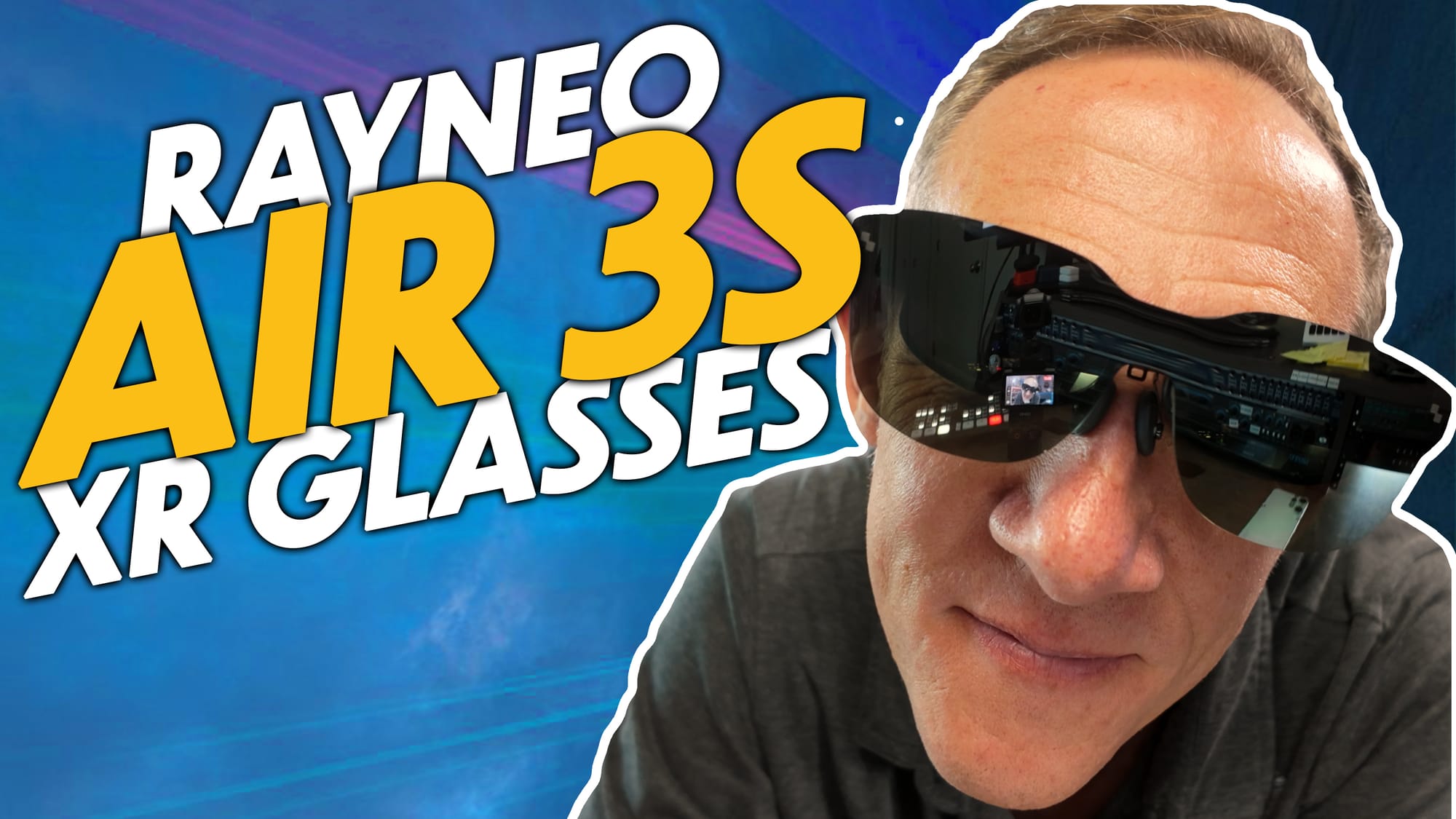If you’ve been waiting for a pair of smart glasses that won’t break the bank, the RayNeo Air 3S might just be the wearable tech you’ve been looking for.


If you’ve been waiting for a pair of smart glasses that won’t break the bank, the RayNeo Air 3S might just be the wearable tech you’ve been looking for. Packing a surprisingly immersive 201-inch virtual display into a lightweight, travel-ready frame, these glasses promise a portable movie theater experience—plus a taste of XR, though that part’s still under construction.
Pros:
Cons:
I’ve tried a lot of smart glasses. Every year they get a little fancier and a lot pricier. So when I checked out the RayNeo Air 3s at the TCL booth at Mobile World Congress, I didn’t know what to expect. Here’s the thing: these aren’t XR glasses, at least not out of the box. What they are is a really solid pair of portable display glasses at a pretty great price of $269.
The RayNeo Air 3s is basically a pair of binocular displays you wear on your face—no spatial tricks, no apps running on the glasses themselves. You just plug them in with USB-C to a video source that supports Display Port output. I used everything from Homatic's Pocket TV to my Galaxy S24 Ultra, which even launches DeX mode for productivity on the go. You can plug these into a MacBook, a Windows laptop, even a game console if you’ve got the right adapter. They’re just a monitor on your face, so you won't find a battery or processor integrated into the glasses themselves.
Comfort is always a big question with wearable tech. At 78 grams, the Air 3s are light enough that I can almost forget they’re on my face, at least for a little while. The nose grippers are squishy and pliable, and the arms have a bit of spring, so people with larger heads can splay them out to find the right fit. I did notice some pressure behind my ears over time and a bit of warmth at the temples after about fifteen minutes. “Hot face” is real, especially if you’re planning a movie marathon.
Let’s talk image quality, because that’s the marquee feature here. The micro-OLED displays are sharp, with 1080p per eye, vibrant colors, and surprisingly readable text. The virtual screen is positioned in front of you, and depending on your environment, it can feel like a massive 201-inch display in a living room setting or about the size of my 35-inch ultrawide monitor when sitting at a desk. The display is not anchored to the real world, so it moves with your head.
I did notice some fading at the corners and top, depending on how the glasses sit on the nose. I found myself constantly nudging them up to see the top of the screen, but that means more light leaks in from the bottom. It's a balancing act.
Speaking of light, the lenses have a sunglasses tint, which helps indoors, but they don’t entirely block out the world. Indoors, the display looks great, even in average lighting. Outdoors or in bright rooms, ambient light floods in and makes it tough to focus on the content. These are definitely best used indoors, and honestly, you’ll get the best results in a dim room.
Controls are straightforward: brightness on the right arm, volume and menu on the left. You can toggle between 60Hz and 120Hz refresh rates and that makes a big difference. Four color modes let you tweak the look, but I stuck with standard.
There are four speakers integrated into the arms, two that point up and two pointing downward. These aren’t bone conduction speakers, so in a quiet room, people nearby will hear what you’re watching. RayNeo has included Whisper Mode 2.0, a sound adjustment feature that is meant to help keep sound from leaking out into the room. In practice, it appears to cut high frequency content which definitely reduces the overall level of sound through the speakers, but the effect is marginal. If privacy is important, you'd be best to use Bluetooth earbuds.
RayNeo offers an app you can sideload on your smartphone called RayNeo XR, which aims to bring some limited XR features. In reality, what you get is a horizontally scrolling home screen that moves with the direction of your head and includes some 3D elements to make things pop.
There are a small number of games, some of which I could not install successfully on my Galaxy S25 Ultra. There is a menu of video streaming services like YouTube and Amazon Prime Video, but those act merely as browser shortcuts to the desktop experience. Within the YouTube app, I had constant issues typing into text fields with the connected smartphone and the voice input feature failed entirely. I also noticed a slow but constant drift to the right in the homescreen experience which forced me to overcorrect by turning my head sharply to the left in regular intervals.
Honestly, the experience is pretty buggy, but I did like how 3D and spatial image viewing are integrated. I shared these bugs with RayNeo who told me they are working to address these issues in a future update. If you’re buying these for XR features, understand that this is a development area and requires patience.
If you need prescription lenses, you’ll need third-party inserts. I used contacts most of the time, but without them, it’s clear that prescription lenses are a necessity for anyone with serious vision needs like myself. Lensology can help you out for an extra cost.
Portability is a huge plus. The Air 3s are super light, and the hard zippered case is sturdy enough to toss in a bag. More than once, I picked up the case and thought there was no way the glasses were inside, it’s that light.
Here’s the bottom line: for the price, the RayNeo Air 3s deliver a surprisingly good, comfortable, and impressively portable big-screen viewing experience. The experimental XR app is a nice bonus, but really, these are for anyone who wants a giant, sharp display you can take anywhere. And when you look at them that way, they’re pretty impressive.